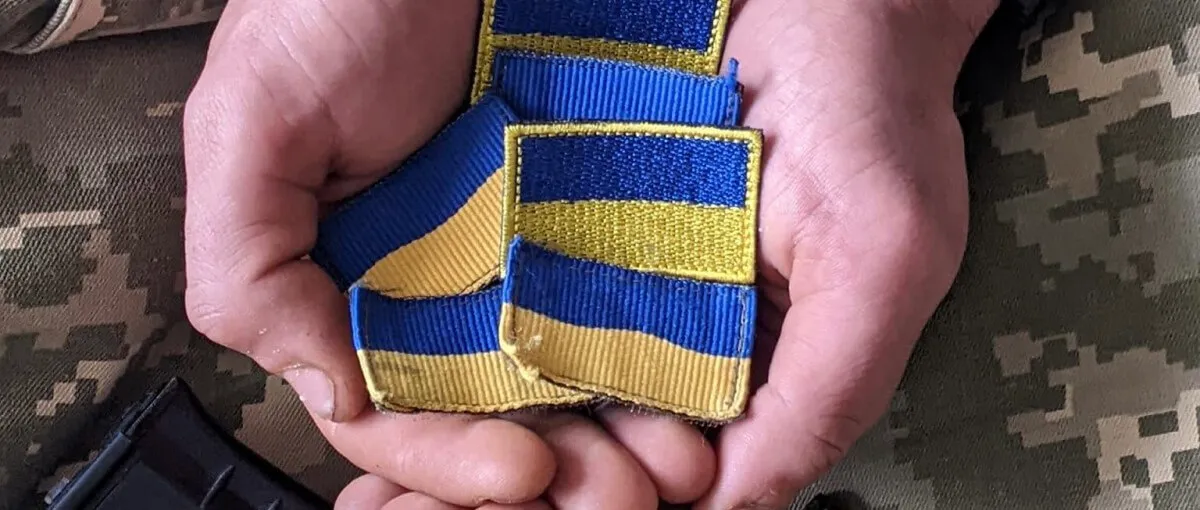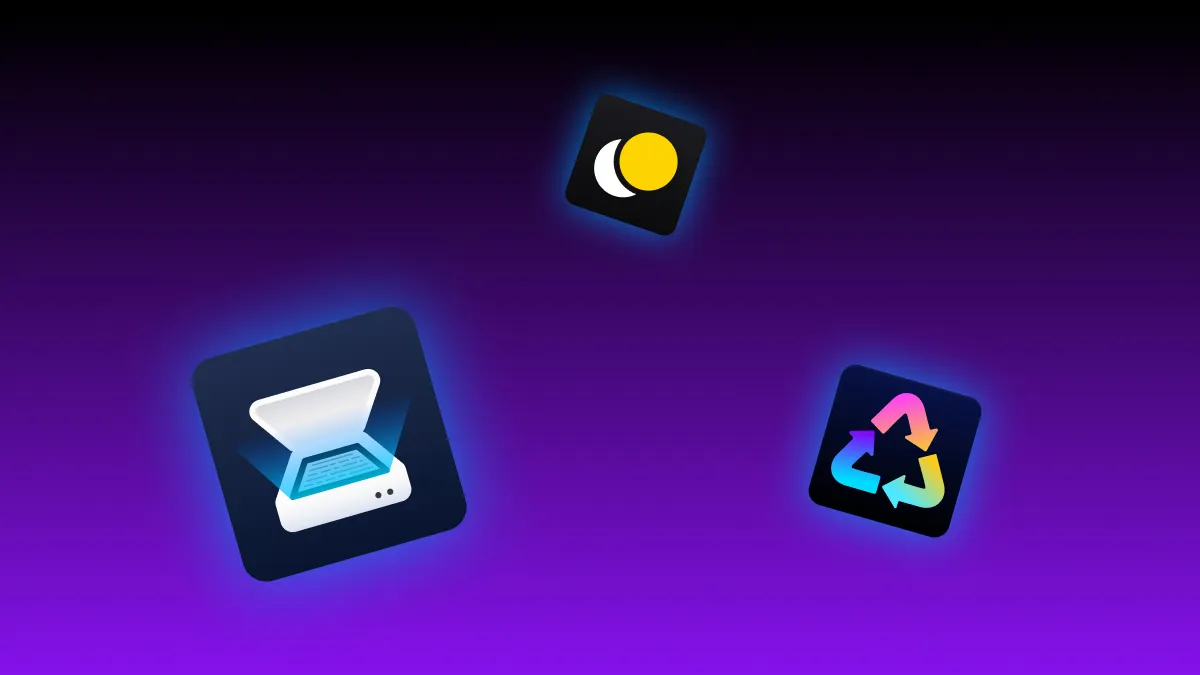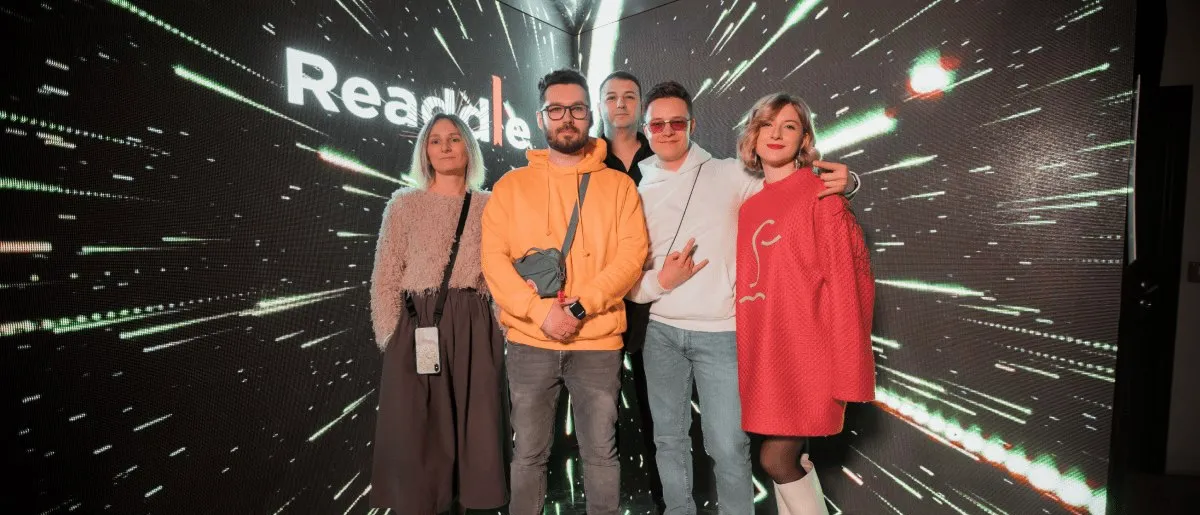TICKETS ON SALE
TICKETS ON SALE
TICKETS ON SALE
TICKETS ON SALE
TICKETS ON SALE
TICKETS ON SALE
TICKETS ON SALE
TICKETS ON SALE
TICKETS ON SALE
TICKETS ON SALE
TICKETS ON SALE
TICKETS ON SALE
TICKETS ON SALE
TICKETS ON SALE
From 2G,
through COVID and a Full-Scale
Invasion:
IT Arena Turns Ten. What a Time!


IT Arena is the largest tech event in Ukraine and Eastern Europe that brings together entrepreneurs, startup founders, product managers, business analysts, and everyone interested in technology. Some guests called it TechCrunch Disrupt, only better.
In ten years, IT Arena has hosted about 25,000 participants, 800 speakers, 1,000 startups, hundreds of media representatives, and thousands of hours of networking.
Every year, IT Arena, held exclusively in English, welcomes attendees and speakers from all over the world. Executives of global giants such as Google, Facebook, AstraZeneca, Microsoft, Tesla, Twitter, etc., had the opportunity to fly to Lviv to speak at the event.
IT Arena survived the COVID-19 pandemic and even the first year of the full-scale Russian invasion of Ukraine. It quickly responded to changes and adjusted the format to continue driving innovation in Ukraine. Three days per year in Lviv are invariably spent discussing trends, opportunities, and challenges for business at IT Arena. This will also be the case for the tenth time in a row this year.
In honor of the IT Arena’s anniversary, we want to recall how the event has evolved over the years.
25 000
participants
1 000
startups
800
speakers
IT Arena is the largest tech event in Ukraine and Eastern Europe that brings together entrepreneurs, startup founders, product managers, business analysts, and everyone interested in technology. Some guests called it TechCrunch Disrupt, only better.
25 000
participants
1 000
startups
800
speakers
Every year, IT Arena, held exclusively in English, welcomes attendees and speakers from all over the world. Executives of global giants such as Google, Facebook, AstraZeneca, Microsoft, Tesla, Twitter, etc., had the opportunity to fly to Lviv to speak at the event.
IT Arena survived the COVID-19 pandemic and even the first year of the full-scale Russian invasion of Ukraine. It quickly responded to changes and adjusted the format to continue driving innovation in Ukraine. Three days per year in Lviv are invariably spent discussing trends, opportunities, and challenges for business at IT Arena. This will also be the case for the tenth time in a row this year.
In honor of the IT Arena’s anniversary, we want to recall how the event has evolved over the years.
In ten years, IT Arena has hosted about 25,000 participants, 800 speakers, 1,000 startups, hundreds of media representatives, and thousands of hours of networking.

2014
Ukraine is entering a new era of independence, and the world is plunging into small blue screens.
The first IT Arena became a meeting place for 800 participants and the largest tech event in Eastern Europe. As Ukraine is recovering from the Revolution of Dignity, the recovery and prosperity of business are more important than ever for the country’s future.
Entrepreneurs are full of expectations, and IT Arena is determined to bring speakers who can share valuable information and advice to Lviv. The creative community is coming together to draft a roadmap for Ukraine’s innovative and creative development for the next ten years.
Let’s recall what trends were relevant then and how they were presented at IT Arena.
800
participants
the largest
tech event
Technology For the State
When it comes to the state, the average Ukrainian citizen thinks of corruption—queues in government offices, nepotism, never-happy officials demanding non-existent certificates, etc. After the Ukrainians overthrew the pro-Russian corrupt elite, everyone wanted a better future for themselves and their children. Comfortable, transparent, innovative.
Theo Schnitfink from Symphony Solutions, an international tech company for software development, testing, and business process outsourcing, talks about how technology can improve Ukraine. Perhaps it was his presentation that helped push through the long-awaited launch of 3G in Ukraine the following year, which failed to materialize in 2014.
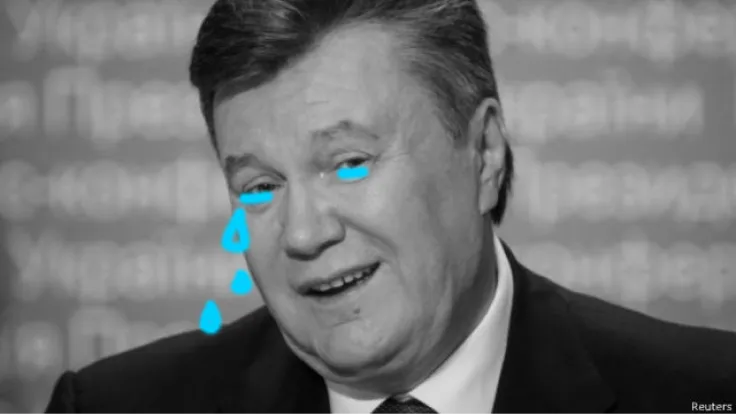

Crowdfunding to Raise Startup Capital
Although the investment climate has been gradually improving since the success of Euromaidan, access to capital in the country still needs to be improved. Crowdfunding campaigns are gaining popularity in Ukraine, and they have helped companies like Petcube, LaMetric, Looksery (later acquired by Snapchat), and others grow from an idea to a real business.
From the stage of IT Arena, Dmytro Baryskyy, co-founder and CEO of the latter, tells entrepreneurs how to use Kickstarter to raise seed funding for their ideas. His advice helps not only inventors of electronic devices but also craft manufacturers. Over time, Ukrainians will literally face a boom of successful crowdfunding projects: All sorts of curiosities will turn into small and medium-sized businesses, create new jobs, and fill the state coffers with taxes.
Multiscreen and Gadgets
Besides the situation in Ukraine, multiscreen became an absolute trend worldwide in 2014. Smartphones are conquering the world, screens are getting wider, wearable gadgets, including watches, are appearing in addition to phones, and even homes are becoming “smart.” All this allows people to be productive on the go—anywhere and anytime, without a computer. And companies can offer them even more goods and services.
But it’s not easy for businesses to keep up with the progress, and those who can’t will lose. That's how Nokia and Microsoft, whose products turned out to be less exciting than the iPhone, ended up on the sidelines of the smartphone business. How can you keep the initiative, navigate through fierce competition, and get the best out of new technologies like NFC, face & object recognition, and augmented reality? Speakers from Pebble, Viber, Eleks, and other global companies discussed this at IT Arena.

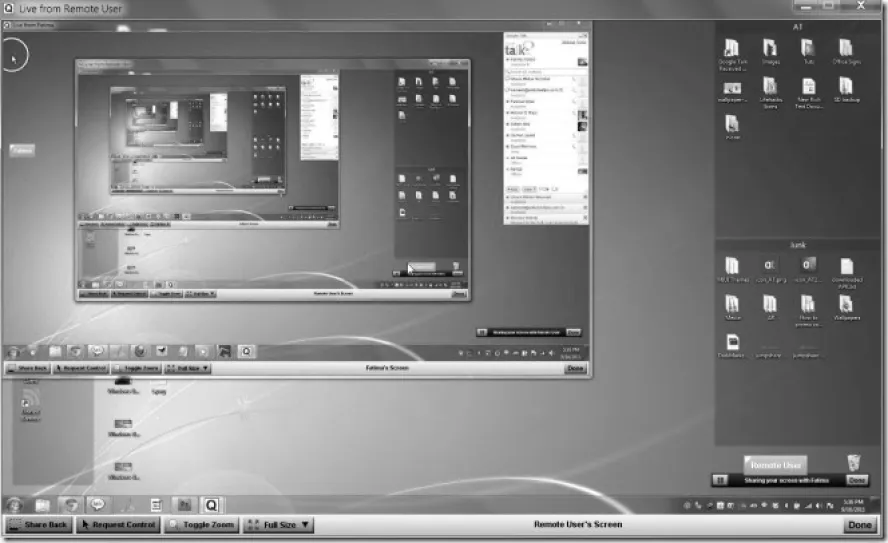
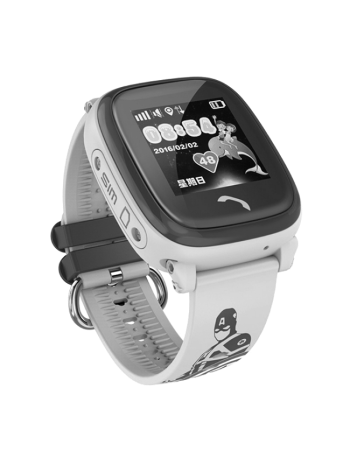


2015
Educational Boom and 3G Launch
The event almost doubled compared to 2014, bringing together about 1,400 participants. Among the speakers, there were IBM Design, Amazon, FitBit, Epson, Facebook, SAP, HP, Petcube, and Microsoft representatives.
Meanwhile, something fundamental happened in Ukraine — 3G was launched. Our country became the last country in Europe to implement this mobile network standard. And although 3G was far from the newest mobile internet technology that was already in existence and being rolled out worldwide at the time, it was vital for people. Companies literally exploded with new opportunities for 3G smartphones.
All this and other global trends were topics at IT Arena.
1 400
participants
doubled
compared to 2014
3G Launch in Ukraine
Remember when you could only call and text from your cell phone? How about an MMS and sharing files via infrared ports? Congrats, you’re old (just like the author of this article) :)
The “dark ages” in Ukraine officially became a thing of the past on February 23, 2015, when the three largest mobile operators in Ukraine — Kyivstar, MTS Ukraine (Vodafone Ukraine) and Astelit (TM life:)) — received 3G licenses. The long-awaited launch caused a big wave of high demand among both ordinary cellphone users and entrepreneurs of all kinds. After all, high-speed internet on the go opens up unprecedented business opportunities. The IT Arena participants and guests talked a lot about this.


Robots
The world, admired and horrified at the same time, is watching the success of Boston Dynamics and its canine-inspired Spot online (sometimes sympathizing with them when testers demonstrate the stability of the “four-legged buddy” by pushing and kicking it). Catching this wave, IT Arena organizes the Hi-tech Expo, an exhibition of robots and the latest technological developments, right in the middle of the event. Attendees got the opportunity to launch drones, try VR, and see the legendary NAO robot.
Although Spot could not make it (being too busy dodging leather bags), an actual virtual host will perform at IT Arena next year. But more on that below.
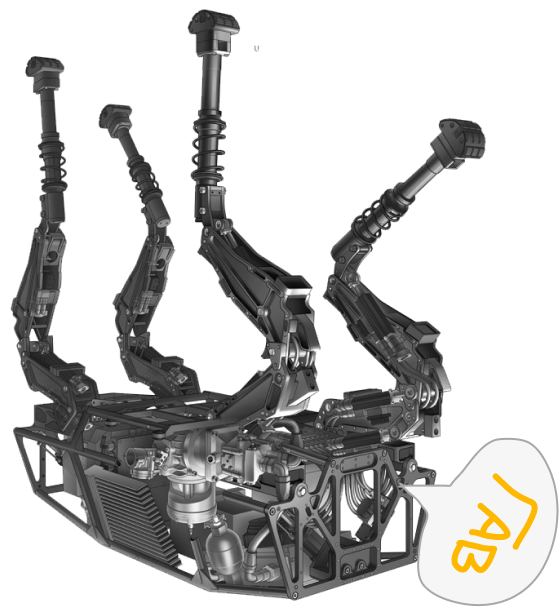

Online Education
Progress rushes forward like an asteroid through the galaxy. Some professions are disappearing, while others appear from nowhere. And not all higher education institutions can keep up. How can you become a qualified SMM specialist if they don’t teach that at university? There are options.
The main trend in Ukraine in 2015 is the opportunity to learn a new specialty that is in demand in the market here and now, in a few months online, and for free. This is the year of Coursera, Udemy, eDX, and similar platforms where Ukrainians take lessons in programming, marketing, design, and even microbiology. Distance learning opportunities are also developing in Ukraine. Thus, several presentations at IT Arena were dedicated to education.
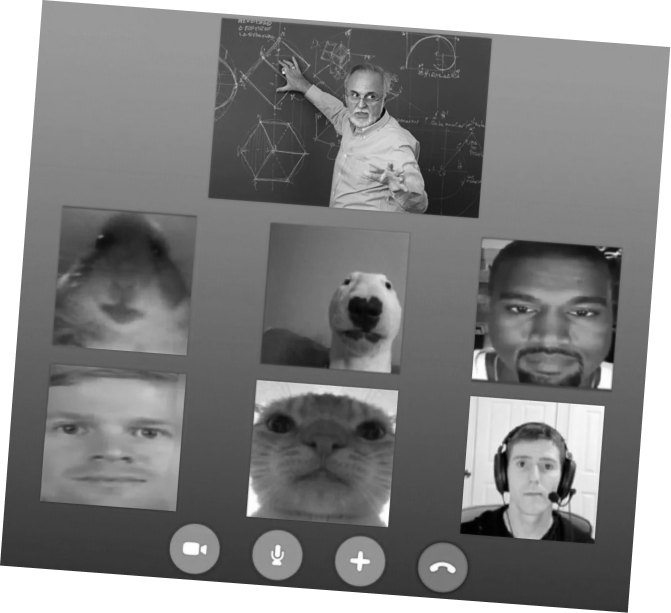

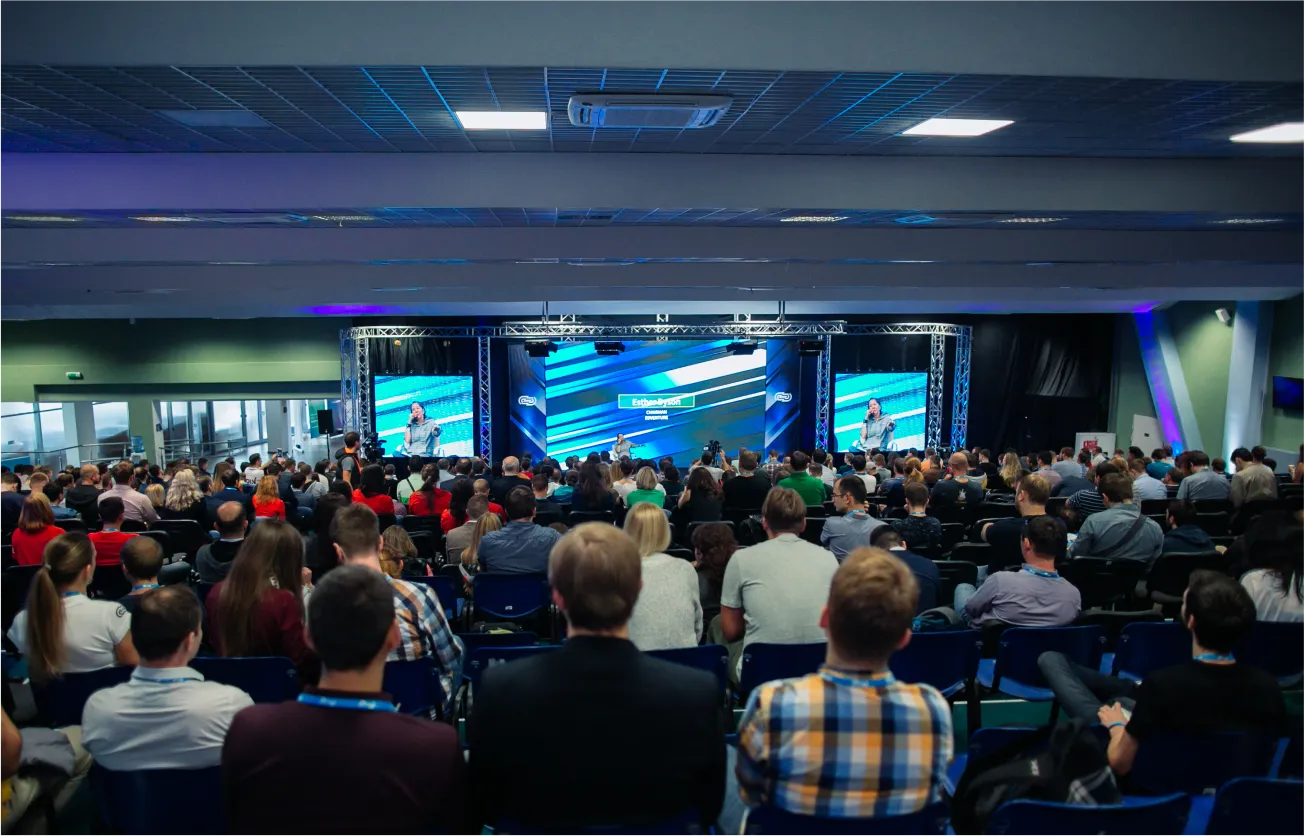

2016
“Uberization” replaces urbanization
In 2016, IT Arena brought together almost 1,800 participants from 12 countries. The event was attended by representatives of the world’s leading companies: IBM, Philips, Twitter, Spotify, Uber, Microsoft, etc.
This year was memorable for a variety of events, especially for the very unsuccessful Samsung flagship (remember Galaxy Note 7 exploding on airplanes?). And also by attempts to introduce a limit on the value of parcels from abroad to 22 euros from 150 (which failed spectacularly thanks to “armchair warriors”). A conscious civil society has emerged in Ukraine, no longer waiting for the government to solve its issues. And a living civil society means a thriving economy.
What innovations were Ukrainians and the world interested in 2016? Let’s recall the surrounding discussion at IT Arena.
12
countries
1 800
participants
“Uberization” of Ukraine
While the main trend in the world is the “Uberization” of the economy (companies are starting to offer everything for rent and delivery), Ukrainians can finally experience Uber personally, first in Kyiv, then in other cities.
There were some “taxi-drivers-against-Uber” protests, but those first few weeks confirmed that our people had been ready for the service a long time ago and were looking forward to using it. The last doubts disappeared when Mantas Klasavičius explained at IT Arena how Uber actually works and how the service looks from the inside.


Virtual and Augmented Reality
The whole world is excited about the latest developments in AR/VR. Now, VR can be used not only for entertainment. The technology enables the automation of countless routines. Several companies, including Samsung, Facebook, Google, and Nokia, presented devices, solutions, and prototypes of virtual reality (VR) custom systems in 2016. Everyone talks about Magic Leap, Oculus Rift, Leap Motion, etc. AR/VR startups are at their peak of popularity, with investors nearly fighting for them.
One of the speakers at IT Arena 2016, Semih Energin, made it possible to dive into this amazing world. He worked directly on the HoloLens VR headset at Microsoft and shared this experience with the audience.


Smart Homes and Green Cars
The make-it-smart trend continues. Electric cars are no longer just for hipsters—more and more governments are imposing restrictions on internal combustion engines, so a Tesla car becomes a practical purchase rather than a luxury. Meanwhile, companies are trying to automate literally everything in your home by adding a voice assistant like Amazon Alexa and the ability to control it from a smartphone.
Ukrainians are riding this tide, too. At the Tech Expo exhibition of modern technologies within IT Arena, Ukrainian engineers presented 25 latest developments. The first Ukrainian electric car, Synchronous, and the DiGi24 smart house system were among them. Visitors could test the Ring smart doorbell, also developed by Ukrainians.



2017
Love, Crypto, and Robots
For Ukrainians, this year has been pretty intense. Finally, Ukraine got a visa-free regime with the EU. It boosted entrepreneurship significantly, making it easier to establish cooperation with European partners while chilling with a glass of prosecco in Milan.
At the same time, Ukraine is further distancing itself from the “Russian world”: Russian websites are being banned in the country, including the most popular social network, VK.com, which immediately changes the landscape of the UAnet. People go mad about cryptocurrency millionaires’ “success stories.” It’s no longer a utopia only for the tech world—the people far from technology are now investing in Bitcoin. However, neglecting the basics of cybersecurity leads to a “nuclear catastrophe” at the level of networks: The NotPetya virus paralyzes the UAnet in a single day, and part of the offline world with it. Everyone begins to realize that technology is not just a geek toy. Now, it is literally our life.
IT Arena also continues to expand: The fourth IT Arena welcomed over 2,300 visitors. This is almost three times more than at the first event. 138 journalists report from the event, 97 speakers share their experience, and visitors will have more than 40 hours of intense networking.
2 300+
visitors
138
journalists
97
speakers
40 hr
of networking
AI is Here
A unique curiosity—Sophia the Robot—is on the front pages of the media. She is like a real person: she can ask and answer questions and even turns her head to the interlocutor. Some people are fascinated, while others are scared. (What if Sophia recreates herself of liquid metal in a couple of years and starts hunting people?) For this reason, IT Arena has a new mascot: Arina, a prototype of artificial intelligence, became the event’s host. And she did a great job.
The idea that artificial intelligence is penetrating our lives was cemented by TechCrunch journalist Mike Butcher. In his speech, he described how companies were already using artificial intelligence in 2017 and how it is changing our lives and the space we live in.
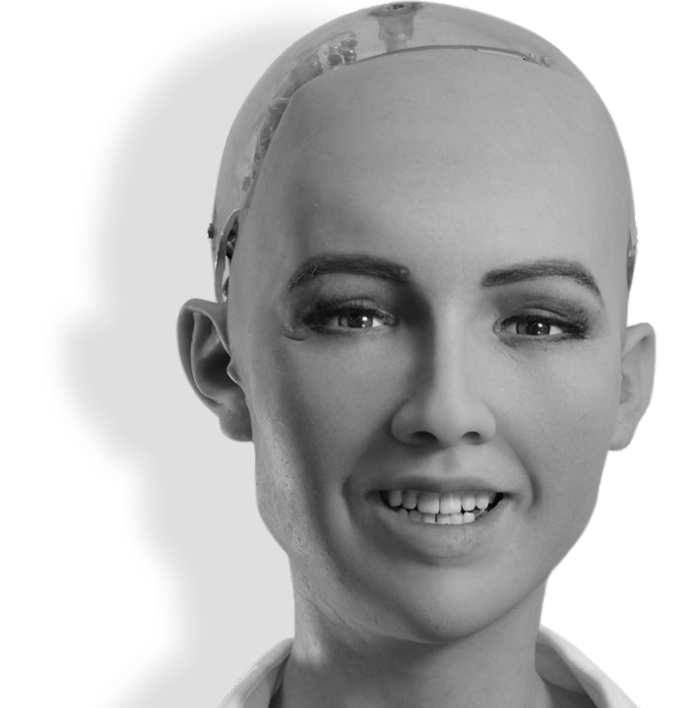

ML
Machine Learning, or ML, is an integral part of AI development. Thanks to advanced ML algorithms, miracles like Sophia and Arina learn to understand humanity. But ML is now used in almost every innovative computer system.
Taras Firman (ELEKS) explained how to develop machine learning models using an IBM quantum computer. IBM Q is the pioneer of quantum computers for business and science. The speaker gave an overview of quantum computing and showed how to implement a simple quantum ML algorithm using Quantum Experience.


Cryptocurrencies and Blockchain
The first crypto winter comes in over a year, and cryptocurrencies are at their peak. Bitcoin is growing, and so is the number of Xs in the portfolios of crypto enthusiasts and investors. Startups are increasingly raising funds through ICOs, which is faster and easier than going to venture capitalists. Although not as transparent as some would like.
Sergiy Bondarenko (Deloitte) spoke of the ICO phenomenon, tokens, and blockchain in simple language. The speaker shared his thoughts on the latest FinTech inventions and the legal aspects of using blockchain.
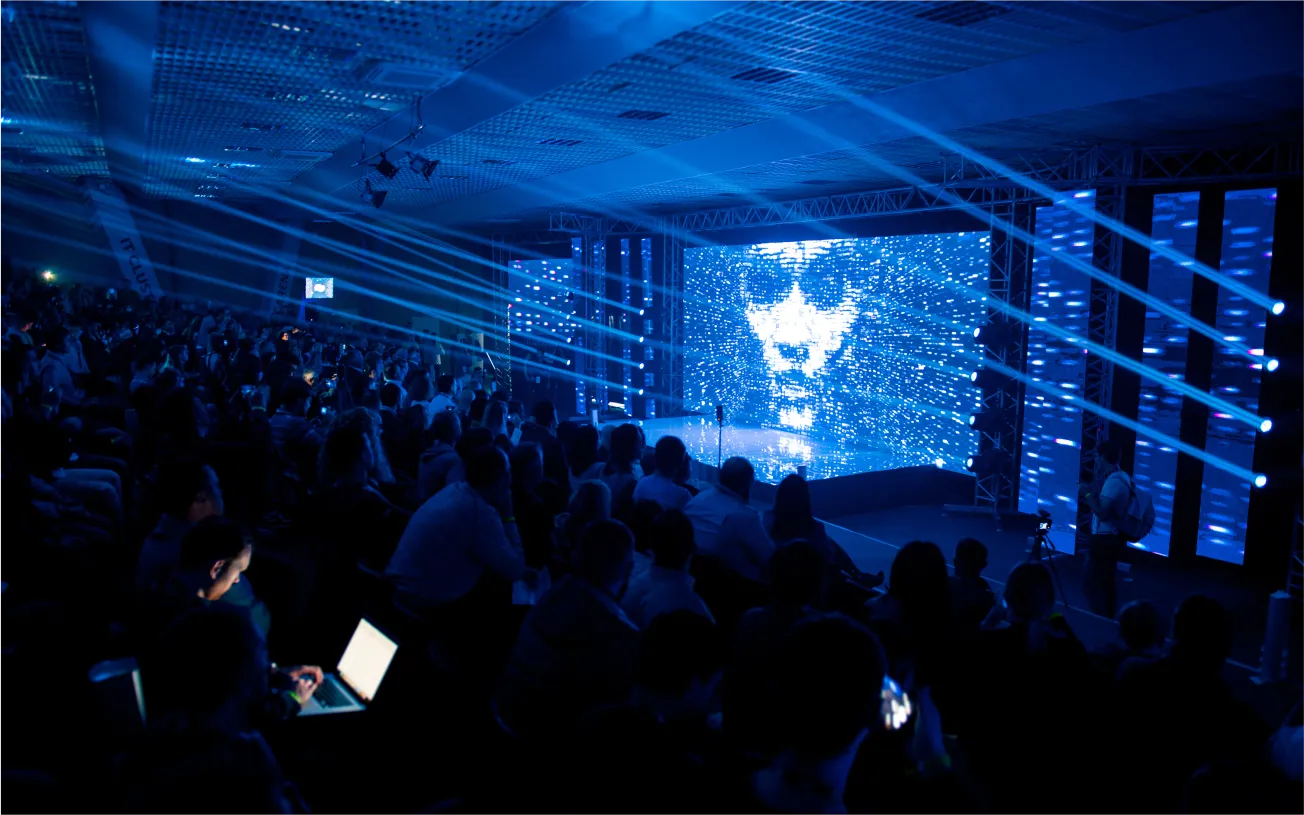

2018
4G and Unicorns
In 2018, IT Arena celebrated its fifth anniversary, marked by a record number of attendees — over 3,300. One hundred top experts from international companies such as Facebook, Tesla, Google, eBay, Uber, SoundCloud, Google, LinkedIn, and other global tech companies shared their experience from the IT Arena stage.
The year was memorable for many large-scale launches in Ukraine: Glovo, Apple Pay, Ryanair. But the biggest one was the launch of 4G and LTE.
3 300+
attendees
100
top experts
4G та LTE
In 2018, 4G came to Ukraine. Mobile Internet can now reach up to 100 Mbps (ideally). Accordingly, even more opportunities open up for business—almost anything can be moved online, and users will have access to the service not only at home or from the office but on the go.
Meanwhile, at IT Arena, the future of 5G in Ukraine, the next mobile communication standard, has already been discussed. In his opening speech, Lviv Mayor Andriy Sadovyi expressed hope that the development of innovative entrepreneurship will not be delayed but will instead accelerate, thanks to new opportunities in the country.


First Ukrainian Unicorn
The more attractive the investment climate is in a country, the more foreign visitors come to events like IT Arena every year, the faster and more widespread the internet becomes, and the more startups succeed. The launch of the long-awaited 4G coincided with another noteworthy event: Ukraine’s first unicorn startup.
In 2018, the GitLab project raised more than $100 million, and its valuation increased to $1.1 billion. The company became the first unicorn in the history of the Ukrainian startup movement (and Grammarly will be next). One of its founders, a native of Kharkiv, Dmytro Zaporozhets, spoke at IT Arena about simplifying development processes with Auto DevOps.
Sex Tech
This year, Ukraine finally decided to decriminalize pornography—the relevant bill has already been written and is awaiting consideration by the Verkhovna Rada. By taxing companies and creators offering adult content or entertainment, MPs expect significant budget revenues.
But in 2018, this was still not the case. At IT Arena, however, they were not afraid to talk about sex tech. At that time, the global sex tech industry was approaching $20 billion in capitalization by 2020. Stephanie Alys, Chief Pleasure Officer at MysteryVibe, an English manufacturer of smart sex toys, spoke about the novelties of the pleasure industry.
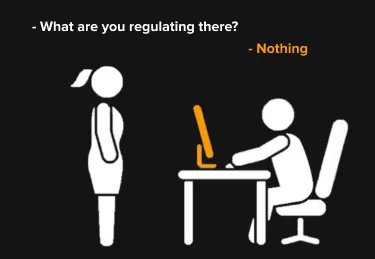


2019
The Black Mirror in which we live
On September 27-29, 2019, IT Arena gathered 3,816 visitors from over 30 countries.
The focus of IT Arena was Humanity in Technology, an attempt to draw attention to how technology affects various aspects of our lives such as security, banking, and the automotive industry, and to reveal the secrets of successful Ukrainian and international startups.
Ninety-one speakers participated in the event, including representatives of Microsoft, Spotify, Audi, UiPath, Uber Freight, and The Number 1 Agency. The event started with a game...
3 816
visitors
91
speakers
Bandersnatch
Do you remember the case when artificial intelligence started issuing racist statements? Then the developers explained: “The point is that algorithms learn from texts created by people. And unfortunately, people broadcast a lot of hate on the web. High morality only works in a deanonymized environment, and the internet is a platform that gives you freedom. Sometimes, this freedom can be dangerous.
At the opening, a robotic voice that proclaimed itself “consciousness” invited the audience to participate in an interactive game. They had to make choices for a fictional character: Should I argue with my classmate or ignore his stupid behavior? Hit a friend or give him a helping hand? Steal a candy or buy it? Crush an ant or not? Often, the viewers’ choices were unexpected or even immoral.
“What lives in people will go into technology,” summarized the “consciousness.”
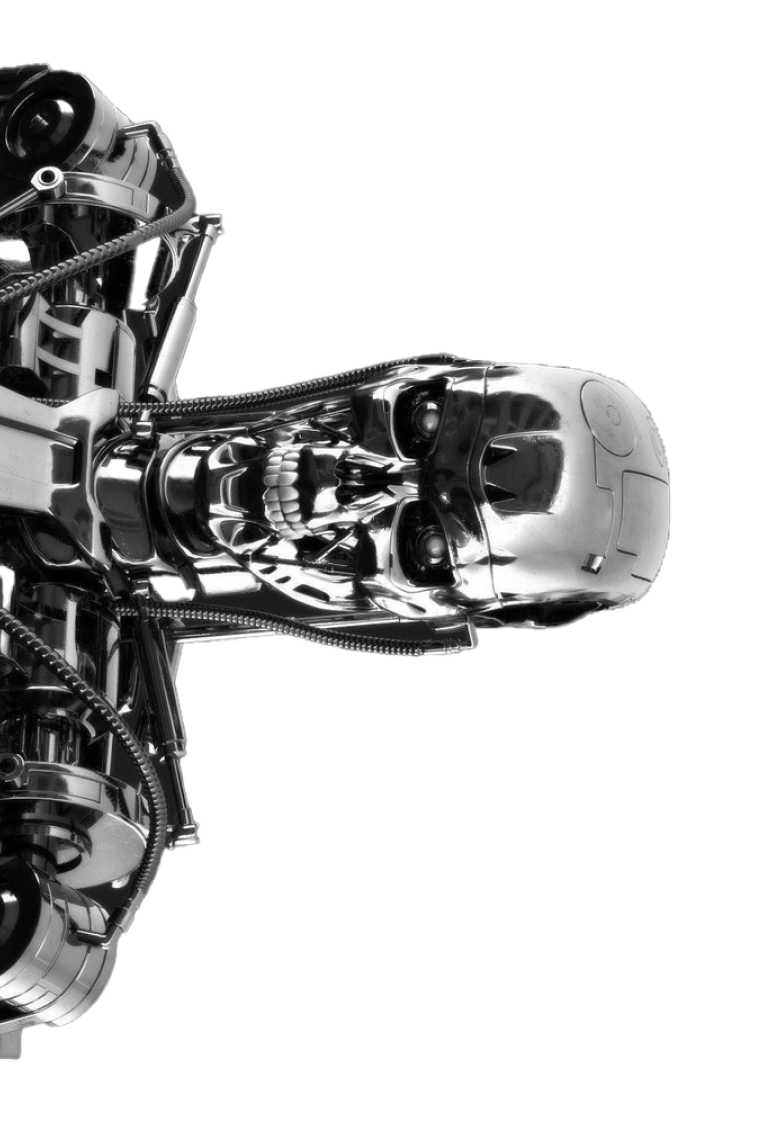
Fictional Reality
My grandfather once told me outright nonsense about how bread can replace all foods. I asked him why he believed it. “Because they said so on TV.”
The internet is the new TV. And it is always with us because now it is in our smartphones. We are drowning in information flows, and it is becoming increasingly difficult to distinguish truth from lies.
The main speaker of IT Arena 2019 was a very non-trivial guest—prankster Oobah Butler. He created a fake restaurant in London, making it the most popular on TripAdvisor with fake reviews. He also deceived the guests of Paris Fashion Week by pretending to be an Italian fashion designer. Everyone was delighted with the “designed” jeans that the prankster bought for a few pounds at a London market.
“People believe what they read on the internet more than things they taste,” summarized Oobah. Unfortunately, this is also working for the occupiers today, helping the Kremlin to manipulate reality. And this trend is only gaining momentum.


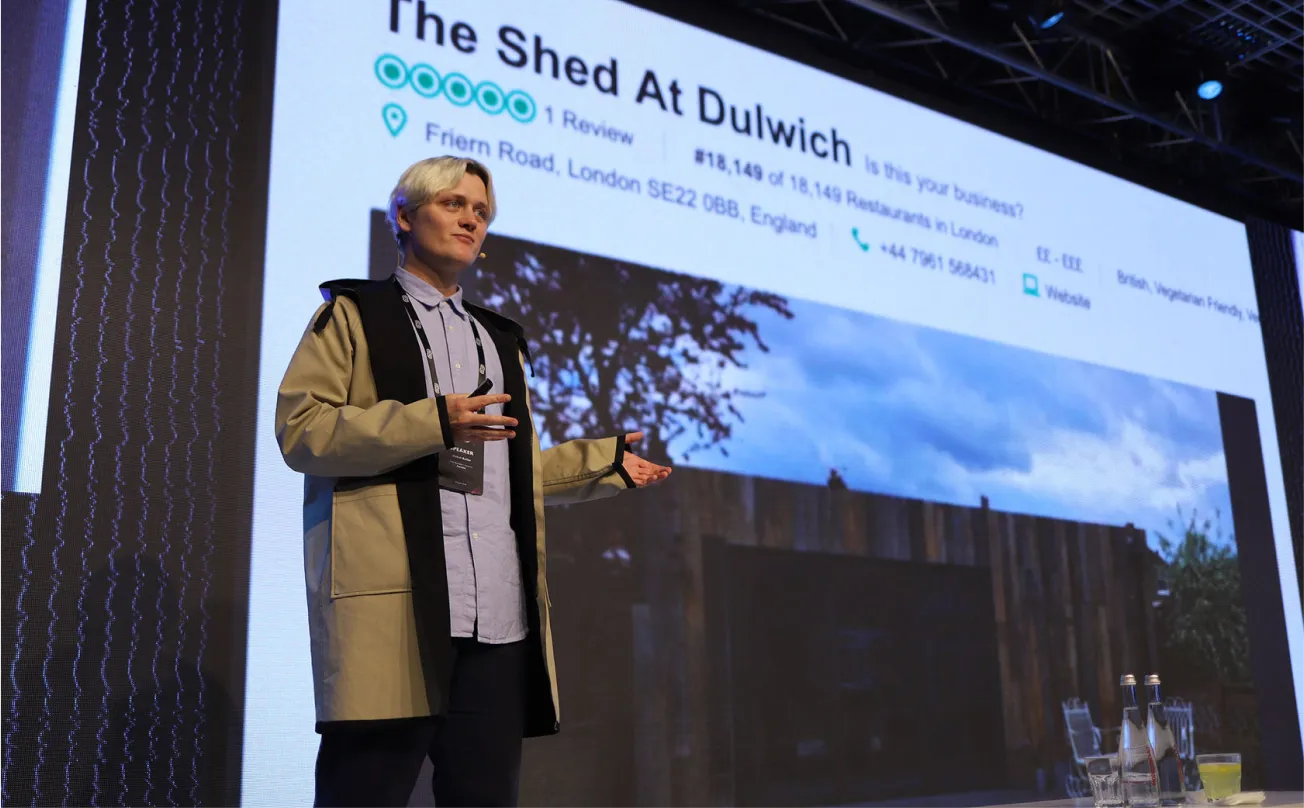

2020
Life in Lockdown
The pandemic has hit the global event segment hard, and IT Arena was no exception. The event went on despite everything, raising the question: “Are we ready to accept changes and face new challenges?”
The organizers long hesitated and initially wanted to postpone the event for six months, but later decided to hold IT Arena online. The online event was organized using Attendify, a Ukrainian startup’s product. Each participant had access to the sessions via laptop or computer browser and could download an app with the same functions.
In total, 4,076 users registered on the IT Arena online platform. Ninety-three companies took advantage of the B2B matchmaking function on the platform, which was created thanks to the USAID CEP program. This is a long-term partner of IT Arena, which became one of its leading partners in 2023.
The only offline thing organized by IT Arena in 2020 was Tech Lounge. This important after-party brought together several hundred leaders of the Ukrainian IT industry, investors, and government officials for informal communication to discuss critical prospects for the development of the tech industry. The event was held following the recommendations of the Ministry of Health of Ukraine.
4 076
users
93
companies
Remote
“The future is here. We are forced to implement innovations,” Ken Sandy, an industry researcher and lecturer at the University of California, Berkeley, aptly noted in his speech.
Indeed, the COVID pandemic has become one of the terrible catalysts that have led to even more rapid technology development. People have been isolated at home, and businesses have adapted to providing services and goods remotely. IT Arena made its own example: the largest event in Europe was remembered for live networking and futuristic exhibitions, albeit mostly online.


Self-Driving Cars
People have already received eco-friendly cars and now dream of autonomous ones. It is believed that drunken or inattentive driving will become a thing of the past. Roads will become safer as soon as the human factor is removed from the driver's seat.
But accidents still happen. In 2019, self-driving cars were constantly in the news: They have already been involved in fatal accidents, avoided police chases, and so on. The question arises: how will autopilots make decisions in cases where a fatal collision and death are inevitable? Whose life would they sacrifice, and who would be responsible for that?
Are we really ready for autonomous vehicles? Olaf Preissner, Vice President of UX Design at Luxoft, explained why the car of the future is still in the far future. “It will take some time to implement autonomous transportation because of the lack of infrastructure. But maybe in 20 years, your car will be able to drive you home after a party on its own,” he explained.



2021
What have we learned from the pandemic?
The pandemic continues, and so does life. 2021 is full of events: In Ukraine, the main hype is around Diia, which has grown five times in a year (to 13 million users). Meanwhile, the voice social network Clubhouse is experiencing its ups and downs worldwide. But TikTok is doing great; the app has grown by 180% during the pandemic—it’s no longer a “social network for teenagers.” It’s the future.
Mass vaccination against COVID-19 allowed people to go beyond online. IT Arena was held in a hybrid format, combining the best features of online and offline events: access to speakers at a safe distance from anywhere in the world and the opportunity to attend meetups and after-parties.
In total, 5,345 users from around the globe registered on the IT Arena online platform. 172 companies used the B2B matchmaking feature. Online access to the IT Arena platform for two devices—desktop and mobile—remained unchanged, providing convenient switching between speeches and allowing to ask questions to speakers and meet other attendees.
So what was discussed in the almost post-Covid world?
5 345
users
172
companies
All-in for TikTok
In 2021, TikTok became the most popular website in the world for the first time, surpassing even Google by traffic. The app downloads hit over three billion, previously achieved only by Facebook products. How did Bytedance manage to develop such a successful product?
“If an app is successful, it should be habit-forming. To make it so, you should take into account user feedback. It is advisable to involve potential users at the development stage,” Frank Bach, Lead Product Designer at Headspace, told IT Arena. He creates and develops products for Headspace, and his developments got into Forbes’ TOP 10 Apps That Change The World.
While for some people, TikTok is a ticket to life (an opportunity to promote their business or become a successful blogger), for most, it is still a platform for procrastination. “Seeing young people watching cats on TikTok for over three hours pains me. This time can be spent studying, moving towards your goal,” said Maye Musk, a keynote speaker at IT Arena 2021. “Do not deny yourself socialization. Always keep a plan in mind and be confident. If no one supports you, find those who will share an idea with you.”
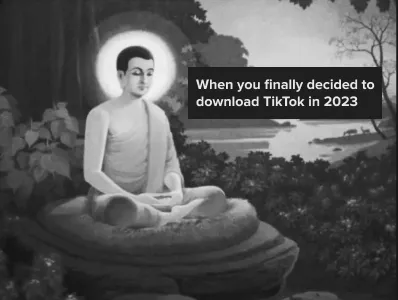

Slow Living
The trend of “doing everything and even more” is being replaced by slow living, which is designed to free people from constant stress, lack of sleep, and FOMO. More and more influencers insist that the pursuit of success should not cost a person’s health, and in fact, nothing improves performance better than healthy sleep.
The world, however, is racing into the future at the speed of light, so how can we keep up? Microsoft Product Manager Beth Anne Katz talked about it at IT Arena. According to the Silicon Valley Business Journal, she is one of the TOP 100 influential women in Silicon Valley. Beth Anne advocates for mental health and stress reduction, so she had much to share with IT Arena guests.


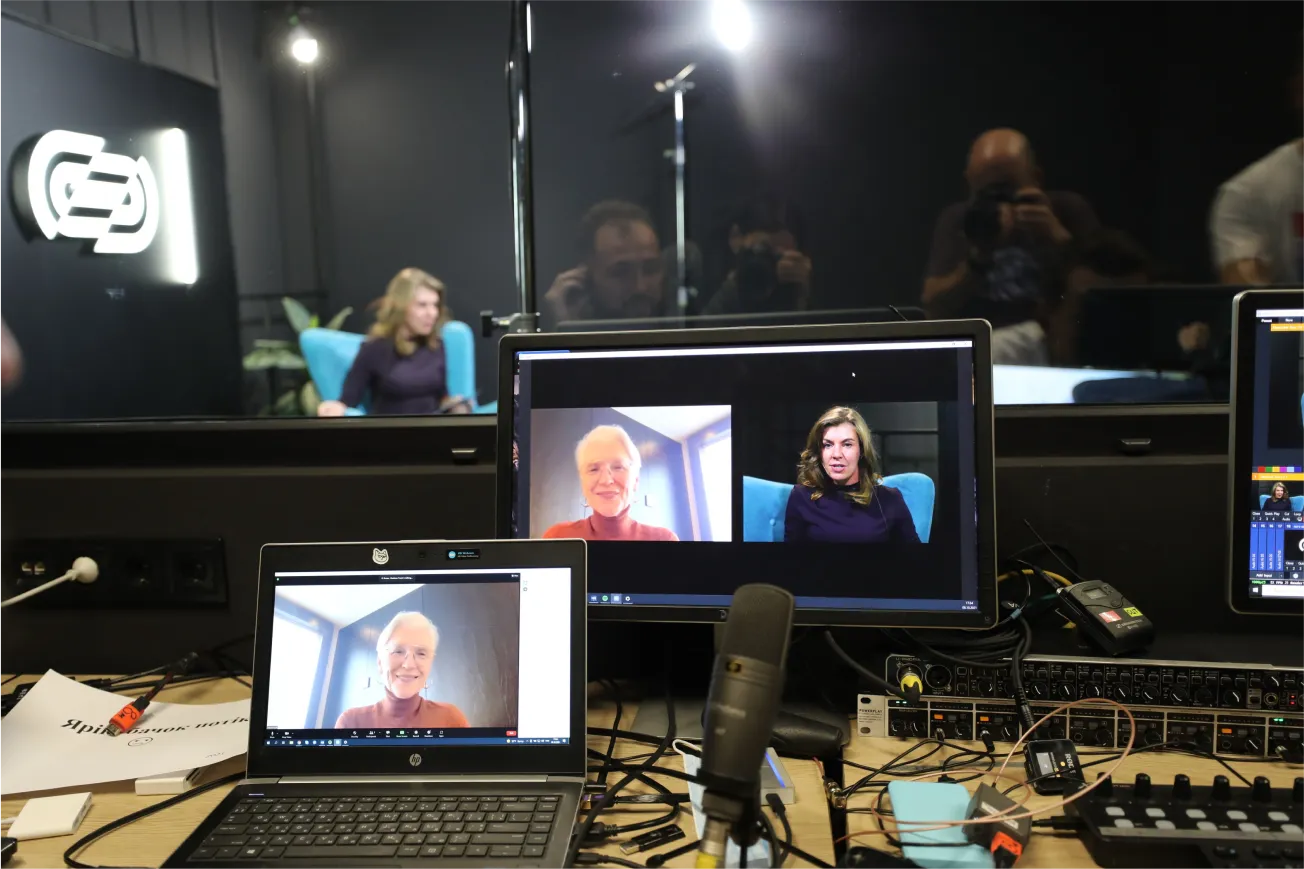

2022
Bayraktar, Drones, and Cyber Defense
Russia’s full-scale invasion of Ukraine dealt a heavy blow to all sectors of the economy. Despite the war, IT Arena 2022 showed the local tech community and international guests the power of being united. Despite the sirens, curfew, and survivor’s guilt, industry representatives, government officials, startups, and entrepreneurs came together to discuss specific steps to keep the industry up and running.
The event welcomed about 1,000 attendees, including representatives of international media such as The Economist, TNW, Spider’s Web, and others.
In 2022, it was hard to talk about anything but the war. Hence, the speakers focused on how technology affects warfare and things that have changed since World War II.
1 000
attendees
Unmanned Technology Repels the Invasion
In the first months of the war, Bayraktar was among the main means of deterring the occupiers. The web was flooded with videos of the drones attacking Russian tanks, and it was clear that they were not going to get “Kyiv in three days” anymore. Songs are being composed about the Bayraktars, murals dedicated to them, and Ukrainians, Lithuanians, and Poles raised money to buy drones for Ukraine.
Haluk Bayraktar, CEO of the Turkish drone manufacturer Baykar, joined IT Arena 2022 online and told why he decided to donate a $15-million drone to Ukraine: “Extreme times call for extreme solutions.” A full-scale war, missile attacks, and even blackouts did not affect his decision to build the Baykar military plant in Ukraine. “The facility design that Baykar will build in Ukraine is almost complete. At our plant in Ukraine, we will assemble not only Bayraktar drones but also supersonic unmanned aerial vehicles,” the CEO said.
Ukraine also has its own drones. Ivan Tolchinsky, CEO and founder of Atlas Aerospace, Cameron Shell, President and CEO of Draganfly, Ihor Maslov, Business Development Director of Ukrspecsystems, and Yaroslav Kalinin, CEO of Infozahyst, spoke at the panel discussion about achievements in military technology, including the development of UAVs.
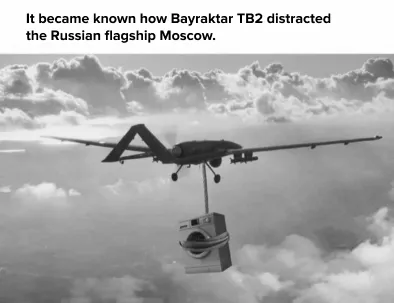

Cyberwar
Russian hackers have long been a nightmare for the world, but with the outbreak of a full-scale war in Ukraine, the number of attacks has increased exponentially. Of course, most attacks can hardly be called cyber operations—mostly DDoS and phishing by so-called “hacktivists.” However, there is no doubt that the Kremlin has a lot of really dangerous hacker groups in its arsenal and will use them to gain an advantage on the ground.
How dangerous are these attacks? How can they be repelled? What is the state of Ukrainian cyber defense? This was discussed by journalist and cybersecurity expert Kim Zetter, Deputy Head of the State Service for Special Communications and Information Protection of Ukraine Viktor Zhora, and External Communications Analyst at Very Good Security Kenneth Geers.
“I look forward to learning more about how Ukraine has digitally protected its networks and systems from cyberattacks during the war. It is interesting to watch Ukraine’s progress in this area and, at the same time, how useful this experience is for the whole world,” Kim said.


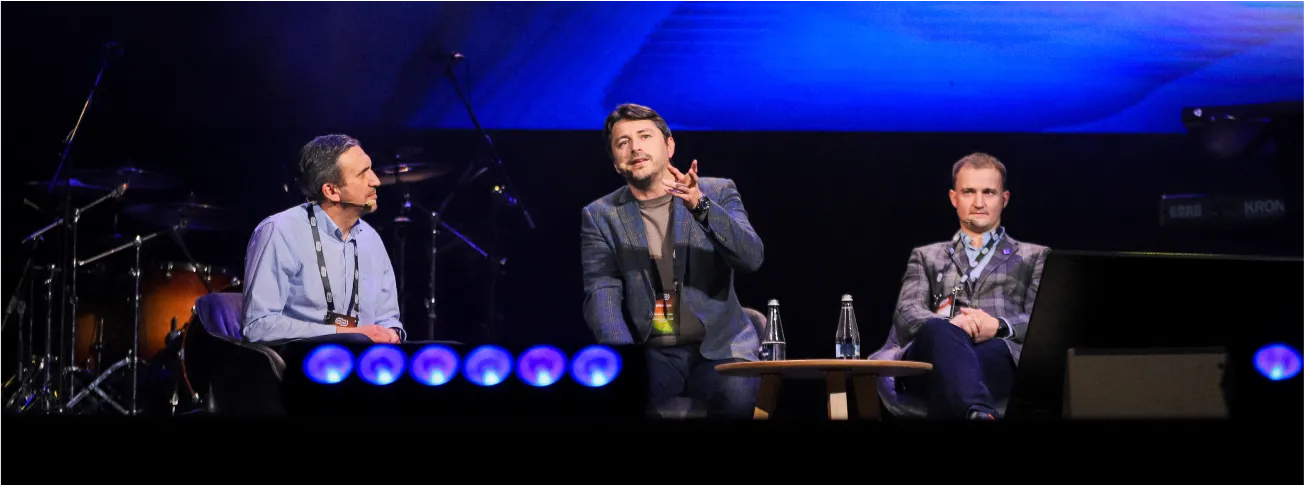


2023
ChatGPT, Globalization, and Digitalization
This year, IT Arena will have 4 blocks: Business, Product, Technology, and Startups. The event will be taking place offline from September 29 to October 1, so attendees will have a lot of networking and activities. The program has already been published here. Hurry up to book the last available tickets.
Among the topics that the speakers will discuss, there are three main ones that have already defined 2023.
ChatGPT and Generative AI
The development of OpenAI has caused a real revolution in the world. With each new release of ChatGPT, the world is increasingly realizing the benefits and opportunities that generative AI brings to people. Yes, it can make mistakes as it learns from humans (IT Arena already discussed this in 2019), but it already can do so many things. And everyone who wants to follow the progress must learn to get along and work with it, and make this world a better place.
ChatGPT is not the only AI tool that will fundamentally change the way we work and achieve our goals in 2023. Midjourney and other developments are already helping programmers, designers, artists, advertisers, copywriters, and other creative talents to be more efficient and productive. Businesses are learning to optimize their processes using generative AI.
I wonder where all this will take us? Let's talk about that.


Globalization
Imagine that you are made in Ukraine, but you work all over the world. This is globalization. The most successful businesses do that. If one market is paralyzed, they offset the losses at the expense of another.
When the full-scale war started, the Ukrainian local market froze. Businesses instantly faced the question of survival, and the only way in the first year of the war was to enter Western markets.
Ukrainians have learned how to be competitive in America and Europe. Now it’s time to conquer Asia with its rapidly developing economies. At IT Arena, we will talk about this market, which is so different from all the others. How to enter, how to gain a foothold, how to compete?


TICKETS ON SALE
TICKETS ON SALE
TICKETS ON SALE
TICKETS ON SALE
TICKETS ON SALE
TICKETS ON SALE
TICKETS ON SALE
TICKETS ON SALE
TICKETS ON SALE
TICKETS ON SALE
TICKETS ON SALE
TICKETS ON SALE
TICKETS ON SALE
TICKETS ON SALE

